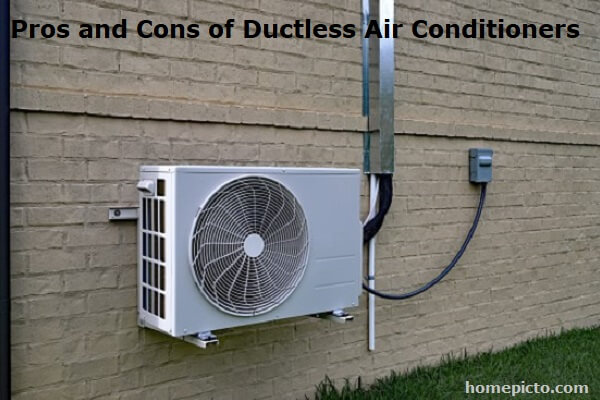Are you considering installing an air conditioner in your house? If so, you may be unaware that there are various types of air conditioning systems accessible. First, name a few alternatives to central air conditioning: window air conditioners, heat pumps, and ductless air conditioners.
We'll talk about the benefits of ductless air conditioners in this article. It should enable you to decide whether a ductless air conditioner is the best option. The benefits and drawbacks of ductless air conditioners are listed below.
A ductless air conditioner works well in homes heated by hot water or electricity. Other benefits include Flexibility in controlling the temperature of each room, as well as total cost savings.
The only thing ductless systems need are tiny holes to fit refrigerant lines; they don't need ducting, an air handler, or drainage. Installation is a joy, thanks to how fast and straightforward interior units mount to the wall or ceiling.
The best ductless systems available today can cut your monthly heating and cooling costs by up to 50% thanks to SEER ratings exceeding 30, compared to the 14–17 of a typical split system.
Ductless systems offer significant energy and financial savings compared to standard ducted systems, which can lose up to 25% of heating/cooling through leaks and heat loss through the ducts in unconditioned attics and crawlspaces. No ducts mean no heat loss.
Ductless systems provided improved comfort management when many inside units were placed by offering various temperatures at each unit position for more effective "zoned" temperature control. Do not occupy a space. For savings, change the parameters.
Ductless systems are as quiet as a whisper, and outdoor units are comparable to the noise level of your refrigerator, unlike the intrusive drone of a split system or window unit.
They are a fantastic option for older homes with little attic, crawlspace, or closet space to accommodate ductwork and air handler components.
Although ductless heating and cooling systems have advantages, they also have drawbacks. To start with, it is far more expensive than an additional baseboard heater or window air conditioner. In addition, local weather conditions and electricity prices affect the system's cost-effectiveness. Additional drawbacks include the following:
It is important to observe vents more often. For some homeowners, a micro split's more significant inner components, which resemble an enormously long printer hanging from the wall, can be an absolute eyesore.
Given their significantly better efficiency and SEER ratings, ductless systems have a higher initial cost; However, this might be easily compensated for by system wide energy savings.
Ductless systems need professional maintenance at least once a year, much like traditional systems. In addition, however, ductless systems' air filters need to be cleaned frequently — at least once a month (more frequently with kids or pets). Ductless fans can't tolerate accumulated junk, and if you don't clean the filters, you'll probably need to hire a professional cleaner to do it for you. Otherwise, your system's performance and lifespan may suffer.
Although ductless systems offer heat, their ability to do so is only effective in particular temperature zones. Additionally, only a few ductless models provide heating and cooling, so if you require both and need a backup heat source, choose a system that is the right size for your environment.
Conclusion
Your objectives will determine the optimum cooling system for you. For example, is comfort in a uniform important? Do you require improvements to indoor air quality? Is additional heat a problem? Because central air conditioners frequently support more high-tech thermostats and indoor air quality accessories, you should also consider your preferences for certain technological advancements. Whatever your home needs, more options and better products are now available than ever.
Our skilled personnel can ensure appropriate installation once you've decided on the best system for your house. Remember to plan preventative maintenance for ductless and central air conditioning systems since frequent tune-ups are necessary to keep them operating correctly.

When installed, ductless systems cost more than central air. But, on the other hand, you save money over time because of their long-term energy efficiency. Because ductless systems may split, you also have better control over how much energy uses to cool each room.
According to experts, ductless heating and cooling systems offer flexibility and greater comfort while using 30–40% less energy than conventional units. As a result, they are an excellent option for newly built homes, renovated homes with new expansions, and buildings without ducting.
A ductless AC may transport cool or warm air more effectively and uniformly than conventional units, resulting in a more comfortable home in terms of temperature. In addition, it's simple to install them.